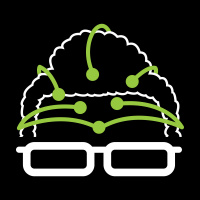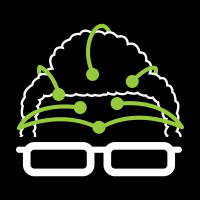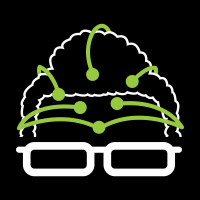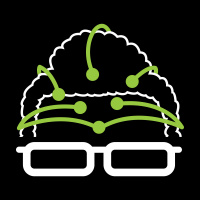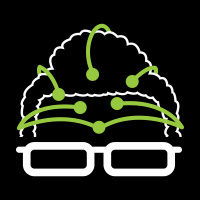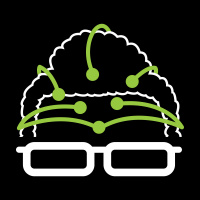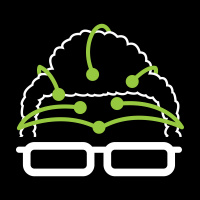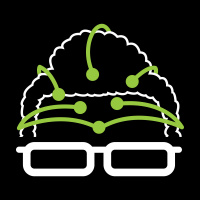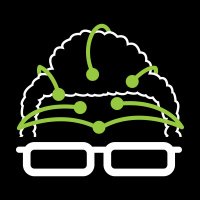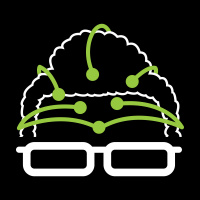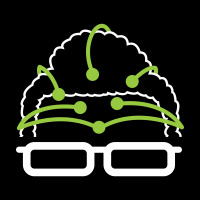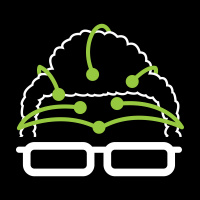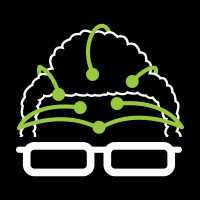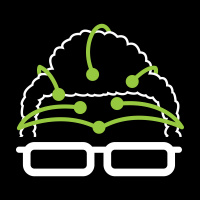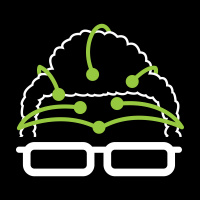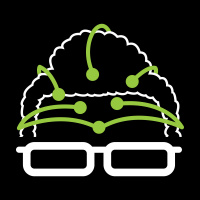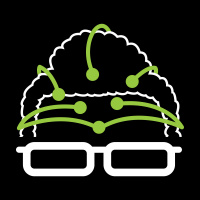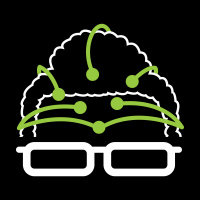Sinopse
Dharma in the Age of the Network
Episódios
-
Form is Emptiness, Emptiness is Evolving
25/07/2015 Duração: 25minDavid Loy, Zen teacher and author, joins us to discuss the radical implications of modern narratives on the traditional Buddhist view of the world. David, whose background includes rigorous academic training and Zen practice in the Sanbo Kyodan tradition, puts him squarely in the “scholar-practitioner” camp. And it’s with this dual-background that he shares some perspective on the way that modern narratives, particularly that of science and evolution, are changing our understanding of the Buddhist path of awakening. Or as David more poetically puts it, “the cosmos is waking up in me, as me, through me.” Episode Links: www.davidloy.org The World is Made of Stories ( http://amzn.to/uwc5dE ) A Buddhist Response to the Climate Emergency ( http://amzn.to/w0P7Cb ) Cosmos Intro, Carl Sagan ( http://youtu.be/R7n71pm0K04 ) Inflation (Cosmology) ( http://bit.ly/1S172C4 )
-
Seasons of Practice
25/07/2015 Duração: 27minWe’re joined again by spiritual teacher and author Terry Patten to discuss the multidimensional nature of practice. We speak about the form he teaches, called Integral Life Practice, one that has it’s roots in the work of Sri Aurobindo, Michael Murphy and George Leonard, and according to Terry goes back even to the time of Patanjali and the Buddha. We also go into depth on the topic of practice itself, exploring some of the many phases, or seasons, that a practitioner often experiences, including the honeymoon phase, the plateu, falling from grace, and awakening. This is part 2 of a two-part series. Listen to part 1, The Art of Dharmic Embrace. Episode Links: Integral Spiritual Practice ( http://www.integralspiritualpractice.com ) Integral Life Practice ( http://amzn.to/sTzZSx ) Beyond Awakening ( http://beyondawakeningseries.com ) Integral Yoga ( http://amzn.to/smutBY ) Ken Wilber ( http://www.kenwilber.com )
-
The Art of Dharmic Embrace
25/07/2015 Duração: 31minTerry Patten–spiritual teacher and author–joins us to speak about some of the challenging issues involve in teaching and practicing an empowering form of dharma. We begin the conversation by exploring his history with infamous teacher Adi Da. Patten spent many years practicing intimately with Da, and shares his incredible love and appreciation for his guru, while also openly acknowledging the many challenges and paradoxes inherent in his approach. He also speaks about the problem of the “rare specimen” and the ways that incredible teachers inadvertently create “demotional”, as opposed to devotional, cultures around themselves. This topics leads us to then explore the various ways that we, often quite unsuccessfully, work with the areas of money, sexuality, and power. We look at why these forces are so challenging to us as social creatures, and as part of that Terry issues an interesting challenge to the Western Buddhist community. This is part 1 of a two-part series. Listen to part 2, Seasons of Practice. Epi
-
A Visitation from the Unknown
25/07/2015 Duração: 23minWe’re joined by spiritual teacher Andrew Cohen to explore the story of how he came to teach what he calls “evolutionary enlightenment.” Andrew begins by sharing an early spiritual experience, that really set him on the path of seeking. He also shares some of his background with Buddhist meditation, which he began with Joseph Goldstein and the famous Indian teacher Anagarika Munindra-ji. And finally he speaks about the most profound encounter he had with a spiritual master, with the late H.W.L Poonja, a teacher in the non-dual tradition of Advaita Vedanta. From here, he shares how his own thinking evolved, even after being asked to teach by Poonja, into what he refers to as enlightenment within an evolutionary worldview. Episode Links: Evolutionary Enlightenment: A New Path to Spiritual Awakening ( http://amzn.to/niYYuV ) EnlightenNext ( http://www.enlightennext.org )
-
No Yogi Left Behind
25/07/2015 Duração: 34minWe’re joined again on Buddhist Geeks by one of the most influential figures in the transpersonal psychology movement, Dr. Charley Tart. We cover a huge range of topics in this interview, covering many things related to what he refers to as a “broad scale approach to meditation.” Charley starts off by speaking about several hypnosis and sensory deprivation research studies, wherein the “demand characteristics” of the experiments dramatically affected the results of the research. We explore the implications this might have on the “set” or context that is used to set up meditation practice, and on the results people experience. We also discuss the lack of useful feedback that occurs in meditation communities, and the dramatically lower success rates of meditation communities, when compared to Western educational institutions. Episode Links: An Evidence-Based Spirituality for the 21st Century ( http://bit.ly/1S15WGC ) The Buddhist Atheist ( http://bit.ly/1S15VCy ) The End of Materialism: How Evidence of the Paran
-
Where Science and Compassion Meet
25/07/2015 Duração: 27minWe’re joined this week by Dr. Kelly McGonigal, to discuss her work at Stanford University, where she is teaching compassion-based practices from the Buddhist tradition, taught in a way that pulls from scientific research and appeals to a secular sensibility. As part of her work with CCARE she shares some of her background with Stanford as well as her long-standing Buddhist practice, which pulls from both the Zen and Tibetan traditions. We close the discussion by exploring some of the difficulties with teaching meditation in a secular context, as well as some of the benefits that come through framing the teachings in scientific and psychological terms. Episode Links: www.kellymcgonigal.com The Willpower Instinct: How Self-Control Works, Why It Matters, and What You Can Do to Get More of It ( http://amzn.to/lcYMyR ) The Stanford Center for Compassion and Altruism Research and Education ( http://ccare.stanford.edu ) Cheri Huber ( http://www.cherihuber.com )
-
The Dark Night Project
25/07/2015 Duração: 25minWe’re joined again this week by Brown University neuroscience researcher Willougbhy Britton. Willougbhy begins this episode by going into further depth into some of the typical experiences that have been reported during her research into the difficult stages of the contemplative path. She lists out typical changes in cognition, affect (emotion), perception, and other psychological material. She also explores the typical duration of these experiences and explores some of the philosophical and practical ramifications of these stages. Toward the end she also speaks about how she and her colleagues–all part of this emerging group of contemplative scientist hybrids–have come together to create a new contemplative development mapping project. This new generation of scientists are studying the mind, and have immersed themselves not only in scientific methodologies but also in contemplative practice. This is part 2 of a two-part series. Listen to part 1, The Dark Side of Dharma. Episode Links: Willoughby Britton @ Br
-
The Dark Side of Dharma
25/07/2015 Duração: 15minWe’re joined this week by Brown University neuroscience researcher Willoughby Britton. In this episode Dr. Britton shares some of the details of a research project that she’s working on called, “The Difficult Stages of the Contemplative Path.” She goes into the purpose of the research project and also some of the research methods she’s using to establish a helpful subjective phenomenology for these difficult stages. She also speaks about how she has collaborated with both meditation teachers and Buddhist scholars to help determine what the common experiences are for practitioners, and whether they have textual references in the Buddhist canons. And to make matters even more interesting, she shares what her personal experiences have been like, as she’s a committed meditation practitioner herself. This is part 1 of a two-part series. Listen to part 2, The Dark Night Project. Episode Links: Willoughby Britton @ Brown University ( http://research.brown.edu/myresearch/Willoughby_Britton ) Britton Lab ( http://www.
-
The Internet is Not Your Teacher
25/07/2015 Duração: 17minThis week’s episode comes from the recent Buddhist Geeks conference where Ethan Nichtern, a Buddhist teacher in the Shambhala tradition, speaks about ways in which the internet falls as a an aid in dharma. He uses the Tibetan teaching on co-emergence to frame the simultaneous benefits and harms of the internet, while also speaking about the limitations of a DIY (Do it Yourself) approach, especially when not being open to genuine human contact, with your community or with a teacher. And he argues that in order to go beyond a surface level dharma, which is mostly what he sees online, that one has to stay with things long enough to penetrate their true meaning. He suggests ways that we might do this and presents a very strong argument for not virtualizing Buddhist practice. Episode Links: Ethan Nichtern ( http://www.ethannichtern.com ) The Interdependence Project ( http://www.theidproject.org )
-
Enlightenment For the Rest of Us
25/07/2015 Duração: 17min“You can perform neurosurgery on yourself.” – Kenneth Folk This week’s episode comes from the recent Buddhist Geeks Conference, where meditation teacher Kenneth Folk spoke about his three pillars of pragmatic dharma: 1) awakening is possible, 2) I know because it happened to me, and 3) here’s how. Kenneth cycles through each of these pillars, going deeper each time, first exploring what enlightenment is–highlighting the difference between a moment of awakening and enlightenment as human development. He also speaks about why he claims that it happened to him, challenging a taboo in Buddhist culture to not speak about one’s personal experience of enlightenment. He then speaks about attention as the common denominator of all the technologies for awakening, exploring his particular approach to training attention, what he calls the 3-speed transmission. Episode Links: Kenneth Folk Dharma ( http://kennethfolkdharma.com ) The #bgeeks11 Round-Up ( http://www.buddhistgeeks.com/2011/08/the-bgeeks11-round-up/ )
-
There is No Enemy
25/07/2015 Duração: 25min“Obstacles in your path should not be regarded as obstacles. They are simply features of the landscape which have to be negotiated.” – Ken McLeod This week’s episode is taken from the recent Buddhist Geeks Conference, where Ken McLeod–a well known Buddhist teacher and management consultant–spoke about moving beyond ‘us vs. them,’ embracing the mystery of the human condition, and changing the world. Ken speaks about the futility of fighting our lives, explores what it means to make an something an enemy, and how to realize that there is no enemy. He shares many helpful suggesting in creating what he calls “a toolkit for change.” Episode Links: Unfettered Mind : Pragmatic Buddhism ( http://www.unfetteredmind.org ) Secret Pilgrim ( http://amzn.to/pzqFAm ) The #bgeeks11 Round-Up ( http://www.buddhistgeeks.com/2011/08/the-bgeeks11-round-up/ )
-
To Know One Religion is to Know None
25/07/2015 Duração: 28minWe’re joined this week by Comparative Religion scholar and Buddhist teacher Rita Gross. Rita shares how she got into Buddhist practice, first studying deeply in the Shambhala tradition and then in the last several years with the Tibetan Nun Jetün Khandro Rinpoche. Rita goes on to speak extensively on the value of studying religion, both as a comparative endeavor and also from the perspective of history. She speaks about the vital insights of the Western European Enlightenment and how the values of rationality and tolerance can imbue our study of Buddhism. She speaks about the types of confusion, sectarianism, and fundamentalism which can reign supreme without this comparative mirror, and urges Buddhist practitioners to learn the clear difference between traditional narratives–the story that tradition tells us–and historical narratives–what a camcorder would record if it were sent back in time. She wraps up our conversation by pointing out that the study of Buddhist history also reveals an incredibly continuit
-
The Buddhist Teachers Council
25/07/2015 Duração: 35minWe’re joined this week by vipassana teacher Martin Alyward to hear his perspective on the Buddhist Teachers Council, a recent gathering of Western teachers that was held at the Garrison Institute. Martin was part of the group of next generation teachers who met with pioneering teachers to explore how they might better support one another. In addition to exploring some of what happened at the teachers council we speak about some of the intense reactions, particularly in the blogosphere, that this gathering incited. Episode Links: 2011 Buddhist Teachers Council ( http://bit.ly/1S13OOS ) Le Moulin Meditation Centre ( http://www.dharmanetwork.org )
-
The End of Self-Referencing
25/07/2015 Duração: 26minWe’re joined again by Harvard trained social scientist Dr. Jeffery Martin. As a conclusion to our discussion on the initial findings on his research into “non-symbolic consciousness” Jeffery goes into the further reaches of his research participants. He speaks about the tendency for people on the higher range of his model to have a diminished sense of self-referential thoughts, emotions, and will, even to the point of being completely gone. Jeffery also covers some of the biases in his research pool, as well as the way that traditions might serve to both support and then also hinder people’s movement into non-symbolic consciousness. This is part 2 of a two-part series. Listen to part 1, The Study of Non-Symbolic Consciousness. Episode Links: The Fourth Awakening ( http://www.fourthawakening.com ) Center for the Study of Non-Symbolic Consciousness ( http://www.nonsymbolic.org )
-
The Study of Non-Symbolic Consciousness
25/07/2015 Duração: 24minWe’re joined by Harvard trained social scientist Dr. Jeffery Martin to discuss some of the incredible research that he’s doing into the further reaches of human potential. He speaks about his initial research, done during his first PhD program, wherein he extensively studied the self-help and positive psychology literature. He explains how this research led him to see that where the further reaches of that literature–and the practices therein–left off was where non-symbolic consciousness begins. Jeffery then goes on to describe the extensive research that he’s done, while completing his PhD at Harvard, on the nature of awakened, or non-dual consciousness. This is part 1 of a two-part series. Listen to part 2, The End of Self-Referencing. Episode Links: The Fourth Awakening ( http://www.fourthawakening.com ) Center for the Study of Non-Symbolic Consciousness ( http://www.nonsymbolic.org ) The God Formula ( http://amzn.to/ovnEwe ) The Intention Experiment ( http://amzn.to/nraxW0 )
-
Tuning In to the Truth of the Moment
25/07/2015 Duração: 20minWe’re joined again by meditation teacher and actress Stephanie Nash, this time to explore some of the striking parallels between the disciplines of acting and meditation. Stephanie shares how a month-long Shakespeare acting intensive was her gateway to the spiritual path and how at it’s core acting is about allow the flow of experience and emotion. She relates some of the Vajrayana practices to the techniques that actors use, and shares some of the ways that actors use the body to enter into an emotion. We conclude by discussing some of the ways that meditators might also learn from actors, especially when it comes to learning how to positively express emotions and stay embodied. This is part 2 of a two-part series. Listen to part 1, The Chief Facilitator. Episode Links: www.mindfulnessarts.org
-
The Chief Facilitator
25/07/2015 Duração: 19minWe’re joined this week by meditation teacher and actress Stephanie Nash, to discuss her experience of working with her Shinzen Young. Stephanie is one of Shinzen’s chief facilitators and has been working closely with him since the late 90s. She shares some of the key things she has learned in that process, including the practice of interactive meditation and radical experimentation. This is part 1 of a two-part series. Listen to part 2, (airing next week). Episode Links: Mindfulness Arts ( http://www.mindfulnessarts.org ) Shinzen Young Interviews | YouTube Channel ( http://www.youtube.com/user/ShinzenInterviews ) Stephanie Nash & Other Teachers | YouTube Channel ( http://www.youtube.com/stephnashmeditation0 )
-
No System Exists in a Vacuum
25/07/2015 Duração: 18minWe’re joined again by Yoga and Buddhist meditation teacher Michael Stone, this time to look at Buddhism as a system. We speak about the interrelations between spiritual systems and the sociological, ecological, and cultural systems that also make up our lives. We also explore what it means for dharma to be in concert with its environment looking at how a systems view may support our motivations to really bring inner wisdom into the outer world. This is part 2 of a two-part series. Listen to part 1, Connections Between Yoga & Buddhism. Episode Links: Centre of Gravity ( http://www.centreofgravity.org ) The Ariyapariyesana Sutta ( http://www.accesstoinsight.org/tipitaka/mn/mn.026.than.html )
-
Connections Between Yoga & Buddhism
25/07/2015 Duração: 29minWe’re joined this week by Yoga and Buddhist meditation teacher Michael Stone. We begin by finding out how Michael got into spiritual practice, which happened to be at an early age through a profoundly spiritual uncle who suffered from schizophrenia. During his time in the asylum, visiting his uncle, he learned to meditate, to contemplative the words of great masters from the past, and to develop his own ideas regarding the spiritual path. This early exposure and interaction informed Michael’s future journey, when he ended up practiced deeply in both the yogic and Buddhist traditions. We finish our conversation by exploring some of the overlaps and deep connections between these wisdom schools, paying particular attention to the similarities between Patanjali’s Yoga Sutras and the early sutras of Siddhartha Buddha. We also speak about the body practices of yoga and what they may have to offer to the mind practices of Buddhism, noticing that both schools are ultimately both mind and body practices. This is part
-
Organizational Enlightenment
25/07/2015 Duração: 22minWe’re joined again this week by organizational expert, and founder of HolacracyOne, Brian Robertson. Brian begins by describing the pit-falls of both strict hierarchy and consensus based organizational structures, pointing out that in both cases the systems are fused with the people. He contrasts that with the Holacracy structure, which employs several methods designed such that the value of both top-down and bottom-up wisdom can be incorporated into an organization. We then discuss the challenges of implementing a system like Holacracy, including the difficult “ego shock” that it can have on people who are used to being heroic leaders. We then speak about the notion of “organizational enlightenment”, which Brian speaks of as “the organization waking up to its own purpose in the world”. This is part 2 of a two-part series. Listen to part 1, Liberating the Soul of Organization. Episode Links:

